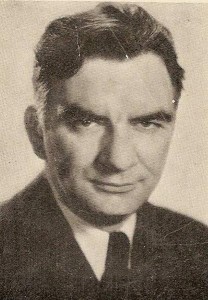Beltane Early Growth Moon
Does Great Literature Make Us Better? NYT article you can find here.
I’ve read great literature off and on my whole life, starting probably with War and Peace as a sophomore or so in high school. I’ve also read a lot of not great, but not bad either literature and have even written some myself. And, yes, I’ve read some distinctly bad literature, but not on purpose.
A formative experience in my reading life occurred in my sophomore year of college when I took a required English literature class. Before taking the class I had given serious thought to majoring in English. Then I had whatever his name was for a professor. He told me what the books I read in his class meant. He also claimed, proudly, to read Time Magazine from cover to cover each week as a form of discipline. (That would have been discipline for me, too. Punishment.)
Whether he represented English literature professors or not I don’t know, and I suspect now that he probably didn’t, but at the time I decided I could do the work of an English major without putting up with anymore of that kind of instruction. I would read. And I did and I have.
(Greuter Seven liberal arts 1605)
[That’s how I ended up in Anthropology and Philosophy for a double major. Though I did have almost enough credits for a geography minor and a theater minor. The theater credits were almost all in the history of theater, which I found fascinating. The geography business came about because I was interested in the Soviet Union and, to a lesser exent then, China.]
Has reading Tolstoy, Dostoevsky, Singer, Hesse, Austen, Mann, Kafka and all those others made me a better person? Hell, I don’t know. In the article quoted above I think the writer refers to an argument about liberal arts in general; that is, that studying the liberal arts makes one more able to think critically in a complex world and, therefore, to act with a higher level of moral sensitivity.
That the liberal arts and reading great literature teaches critical thinking is, I think, established. They do this by the comparative method, familiar to students of anthropology and philosophy and literature and theology. How does it work? In the words of blue book essay tests since time immemorial, you compare and contrast. By comparing this culture to that one, or this writer to that one, or this book to that one, or this period of philosophy to that one or this theological perspective to that one, a sensitivity to the variations in argumentation, in problem solving, in abstract analysis becomes second nature.
This sensitivity to the variations does not, I think, breed a more moral person, but it does produce a more humble one, a person who, if they’ve paid attention, knows that this solution or that one is not necessarily true or right, but, rather is most likely one among many. This humility does not cancel out conviction or commitment, rather it positions both in the larger reality of human difference.
So, in the end, I don’t believe the case for reading great literature is to be made in its efficacy or lack of it in creating moral sensitivity, but rather in great literature’s broadening of our horizon and in the concomitant deflation of our sense of moral righteousness, perhaps, oddly, the very opposite of creating a more moral person.


